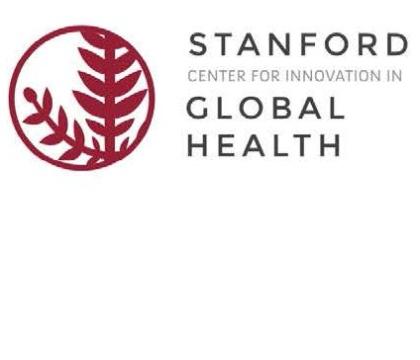2022 Stanford Global Health Seed Grants - Call for Proposals
Purpose
The Stanford Global Health Seed Grant program encourages the development of innovative solutions to global health and planetary health challenges. It supports scientific and clinical research as well as innovations in health care implementation or delivery. The program seeks to enable Stanford’s vibrant global health community and build capacity with international partners. Research projects that have strong potential to generate solutions and impact, and/or scale up into larger initiatives are encouraged to apply.
The Center for Innovation in Global Health believes that local is global. We are committed to improving health equity among all populations, including in the United States.
Program Priority Areas
Preference will be given to research teams that include more than one discipline and reflect the Center for Innovation in Global Health’s major initiatives and funders’ priorities:
- Global Health: Interdisciplinary, solutions-oriented research that seeks to improve health in low-resourced settings
- Human and Planetary Health: Research that addresses the health implications of climate change or other forms of environmental degradation
- Global Maternal and Child Health: Projects that seek solutions to improve maternal and child health in low-resource settings
- Global Emergency Medicine: Projects that support innovative research in emergency medicine in low-resource settings
- Global Surgery: Projects to develop or support educational programs, research, or innovations that improve global surgical care
- Global Ophthalmology: Projects that support research that improves global eye health
- Local is Global: Solutions-oriented research that seeks to improve health equity in the San Francisco Bay Area
- Asian Health and Healthcare: Solutions-oriented research to improve Asian health and healthcare
Eligibility
-
The following are eligible to submit proposals:
- Stanford faculty with PI eligibility [tenure line (UTL), university medical line (UML) or research (NTLR) faculty appointments]
- Clinician Educators (CE) at the rank of clinical assistant professor and above who are full-time Stanford employees with 100% CE faculty appointments
- Post-Doctoral fellows, clinical trainees, instructors, and research scientists/scholars must identify a faculty mentor and may be included as co-PIs.
- Projects that create new interdisciplinary collaborations are encouraged, as are those including Fellows, post-docs, students, and/or staff. Teams may include investigators in off-campus partner institutions, including in Low- or Middle-Income Countries. Teams may also partner with nonprofit organizations, industry or government officials.
* At this stage, you do not have to prepare a PIF, a PDRF form or work with your institutional representative (RPM or OSR)
Selection Criteria
The Stanford Center for Innovation in Global Health and funders will review proposals based on:
- Scientific merit of the proposal, with quality, innovation and creativity balanced by likelihood of success
- Interdisciplinary nature of the project and research team, including international collaborations where appropriate
- Likelihood that results or solutions will result in improvement of health issues faced by vulnerable populations
- A persuasive case that results would catalyze further funding from external sources
- Alignment between the proposal’s goals, the goals of the Center for Innovation in Global Health and the program priority areas and funder interest
Submission Guidelines
All documents should be in pdf format, single-spaced, Arial 11-point font, with one-inch margins.
Submissions must not exceed 3 pages, exclusive of cover page, citations, budget, and biographical information.
To be considered, all elements of the proposal must be collated into one PDF file and uploaded.
Each proposal must include:
-
Cover page
- Project title
- One-paragraph summary
- Priority Area(s) [no more than two]
- Each team member’s name, email, professional title, and department and school affiliation(s)
-
Proposal
- Introduction
- Specific aims
- Preliminary data (if available)
- Proposed project design and methods
- Collaboration plan (how the multi-disciplinary team will work together)
- Description of potential for impact and follow-on funding
-
Supporting material
- Literature cited
- Itemized budget with brief budget justification
- Short (150 words max) bio-sketches for team members
Key Dates:
- April 15, 2022: Proposals due via online application (11:59 PM Pacific)
- Early June: Award letters are sent out
- July 1, 2022: Grants begin. Awards will be for 18 months or less. All grantees are eligible for one no-cost extension if necessary.
Reporting Requirements:
- Once grants are awarded, the project team must submit a PDRF form via SeRA to set up their seed grant PTA.
- All seed grantees must submit annual progress reports by December 1, 2022, and a final report 45 days after the work has been completed.
- All seed grantees must also apply to present their funded research at the annual Stanford Global Health Research Convening.
Amount of funding
$10,000 - $50,000 for 18 months.
Funders include:
- the Stanford Center for Innovation in Global Health
- the Woods Institute for the Environment
- the Maternal and Child Health Research Institute
- the Sean Parker Institute for Allergy and Asthma Research
- the Stanford School of Medicine (SOM) Departments of Surgery, Ophthalmology, and Emergency Medicine
- the Stanford Health Care Research & Health Equity Programs
- the Stanford Center for Asian Health Research and Education
Budget Guidelines
Award amounts are based on analysis of a detailed budget request.
- Funds may be used for salary support of faculty, graduate students, post-docs, and other research staff.
- Eligible budget items include: operating supplies, minor equipment items, communications expenses, meeting costs, prototyping expenses, imaging time, and travel directly associated with the research activity.
- The grants will not support general (non-research-related) staff, administrative support, or tuition.
- No indirect charges need be included in your budget.
Questions? Contact: S. Jill Mueller: sjillmueller@stanford.edu
Research Compliance Questionnaire
